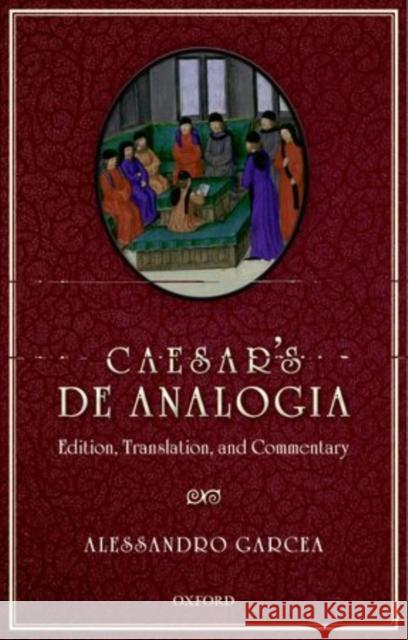Caesar's de Analogia: Edition, Translation, and Commentary » książka
Caesar's de Analogia: Edition, Translation, and Commentary
ISBN-13: 9780199603978 / Angielski / Twarda / 2012 / 320 str.
At the end of the Republic, religious, legal, and literary knowledge began to take the form of a 'Roman heritage', as broadly defined as it was indefinite. Caesar, like Cicero, thought that language, along with political institutions and laws, constituted the fundamental feature which defined the identity of a people. So, as with statutes, libraries, and the calendar, he intended to fix general laws in the sphere of language with his treatise De Analogia in order to establish a solid foundation for Latin--a language whose evolution was driven by the need to preserve heritage and by confrontations with the linguistic habits of the allies of Rome.
In this volume Garcea brings together for the first time the fragments of Caesar's De Analogia with a complete translation and commentary. Contextualising the text and its quotation by Pliny in his Dubius Sermo and by Julius Romanus in his Aphormai, Garcea presents the issues raised by means of comparison with the texts of Caesar's interlocutors--principally Cicero, Varro, Nigidius Figulus, and Philodemus of Gadara. The study of all these sources, most of which have never been translated into a modern language, fill a gap in the representation of the history of linguistic development in the classical period--ultimately portraying how in republican Rome, there was still no clear distinction between the different subdivisions of learning.











